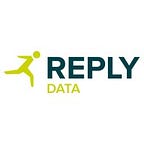In case you missed it — Pydata London 2016
A tutorial at this year’s PyData London conference.
If you are passionate about data, Finsbury Square in London in May is a great place to be. This year, PyData London 2016 did not disappoint: lots of ideas shared, jokes told, and valuable connections made. In this (and my next) post I want to take a step back and recap the main topics I followed over the 3 days.
What is PyData?
PyData is the largest global community uniting users of Python for data analysis / processing / hacking / wrangling. It consists of numerous meetup groups, which gather annually for conferences in the major centres (London, Paris, Berlin, Chicago, Washington, Cologne, to name a few). The goal behind this movement is to bring Python language users together so that they can learn from each other by sharing ideas and experiences. PyData conferences are organized by NumFOCUS, a non-profit that “promotes the use of accessible and reproducible computing in science and technology”.
The London conference ran over three days (6–8 May), with the first day dedicated to tutorial sessions and the other two to the conference itself. The talks were highly data-science-oriented with a pinch of other Python applications here and there. The conference presentations showed a huge variety of Python applications for data analysis in numerous fields ranging from classical statistics in finance and the social sciences, to hardcore machine learning models in computer vision. Due to a large audience and the volume of material, the tutorial sessions were quite similar to regular conference talks only more interactive and code-oriented. There was a fair amount of overlap between topics, which I suppose is a
Originally published at www.datareply.co.uk.
